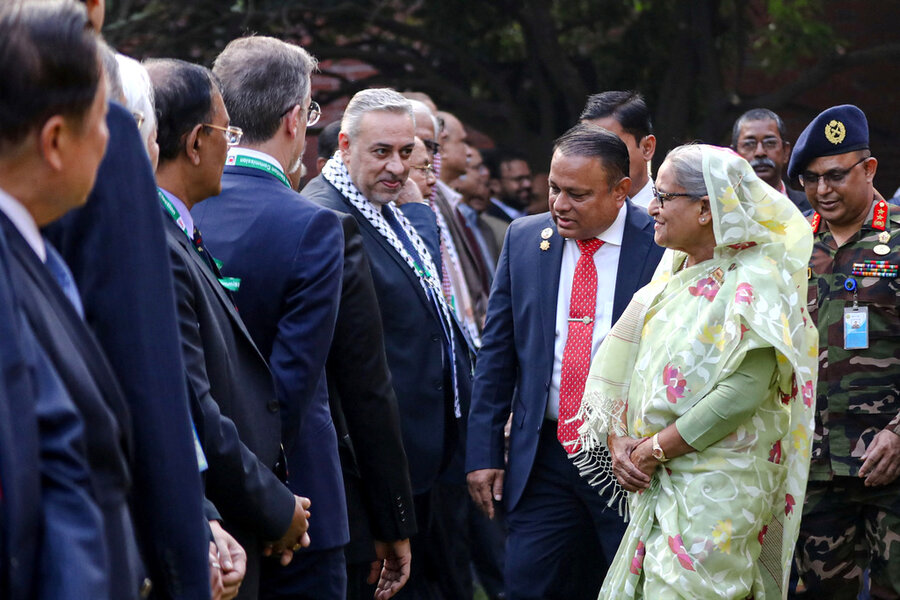Lift for elections with honest observers
Loading...
Perhaps the biggest surprise in this week’s Republican presidential primary in New Hampshire wasn’t that Donald Trump won but that voter turnout was a record high. In other words, GOP voters – who mostly believe fraud was behind Joe Biden’s national win in 2020 – thoroughly trusted the electoral system in a state where Mr. Biden clearly won. Their faith in the system said more than the primary’s result.
Such triumphs for honesty in elections – that is, honesty in ballot counting and truthfulness in accepting a valid count – are what may help ensure the comeback of democracy in a year with a near-record number of elections worldwide.
Nearly half of the global population will cast ballots for national leaders in 2024, including voters in the United States. In most of these contests, civic-minded electoral officials will try to follow recognized international standards, such as impartiality and transparency. Yet even these officials often welcome an extra layer of protection for the sovereignty of individual citizens to shape their governance through the ballot. They invite neutral foreign observers – as New Hampshire has done – who are well steeped in electoral “best practices” to scrutinize the process.
A number of groups, such as The Carter Center in Atlanta, offer this service of expert observation and expert correction. Perhaps the most influential is the Organization for Security and Co-operation in Europe, or OSCE, which has observed more than 400 elections over the last 30 years on either side of the Atlantic. Founded during the Cold War, the Vienna-based group – with countries ranging from Canada to Russia – is a watchdog for civic rights and fundamental freedoms within its 57 member states.
“By helping to increase public confidence in the honesty of the election process, election observation ... builds trust in elected representatives and democratic institutions,” Matteo Mecacci, director of the OSCE’s Office for Democratic Institutions and Human Rights, wrote in the EUobserver this week.
The OSCE, for example, called out the United States to make electoral reforms after the 2020 and 2022 elections. It is helping tiny Moldova withstand Russia’s malign influence on voters before a March presidential election. And when the authoritarian leader of Belarus refused to allow OSCE monitors to observe this February’s parliamentary vote, the organization lamented that citizens will not benefit from “an impartial, transparent, and comprehensive assessment” of the election.
Such international observers are beacons for the universal values of democratic government. Those values, if honored, help create trust in a free and fair election. As Mr. Mecacci states, “Trust is key to any election.”
And it certainly was key for Republicans in New Hampshire to accept Mr. Trump’s win in the first primary of the 2024 presidential election.







